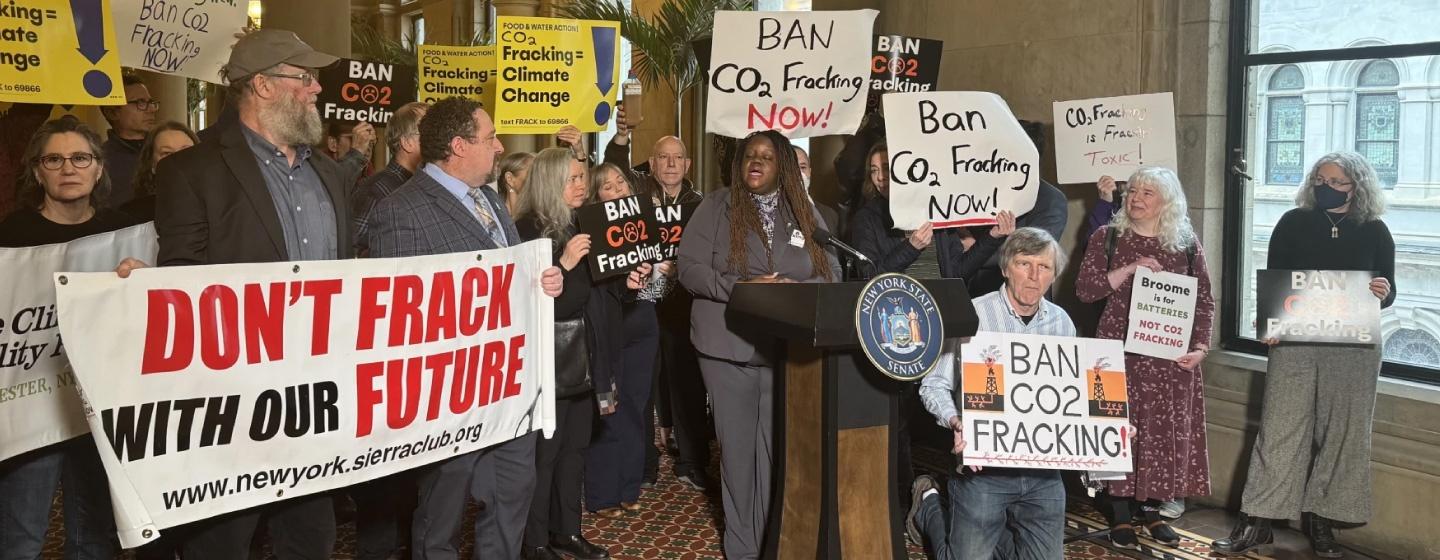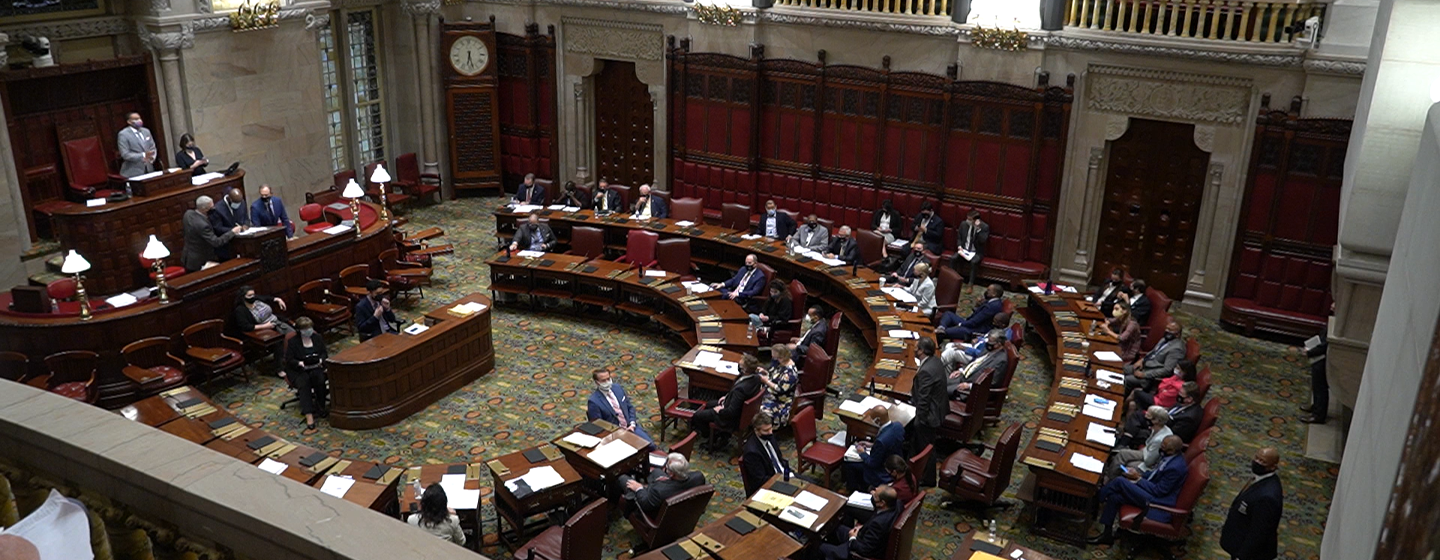How the Fight Over Fracking Reemerged in New York

Nearly a decade after New York passed its controversial fracking ban, the debate over resource extraction in the state has returned.
Gathered at the state Capitol earlier this month, a group of elected officials, environmentalists, and anti-fracking advocates repeated a chant many knew well. Calls to “Ban fracking now!” rang out, with state Sen. Lea Webb leading the crowd.
Webb, like many of the others who had gathered to rally against a new gas and oil extraction proposal in the state, has made this demand before. Yet, many believed that fight was long over — New York banned hydraulic fracking in 2014. Since then, as oil and gas companies began fracking in neighboring Pennsylvania and other states, shale formations in the Empire State have remained untouched.
But now a new proposal to drill into the Marcellus and Utica shales has revived the decades-long fight and surfaced questions over the feasibility of a "greener" method of extracting oil and gas.
The proposal, brought by the Texas-based company Southern Tier Solutions, aims to use carbon dioxide in its extraction process, getting around the state’s hydraulic fracking ban and promising to dispose of tens of millions of metric tons of heat-trapping carbon dioxide in the process.
“This is an opportunity that I believe the Southern Tier has,” said Bryce Phillips, the company’s president, on the public radio show Capitol Pressroom last year.
Philips has framed the proposal as an innovative and environmentally-friendly way to extract gas from New York’s shale, referencing the state’s commitments to reaching net-zero greenhouse gas emissions by 2050. The process would require injecting pressurized carbon dioxide into the ground to surface methane, which would then be turned into energy.
“If you want to reach the goals of the 2019 climate act, you would allow us to capture carbon dioxide from existing power plants in Pennsylvania, and pipe that carbon dioxide through the Southern Tier and inject it,” Phillips said on the radio show.
But that framing — and the potential of a form of fracking taking off in New York — has drawn sharp criticism.
Many experts say carbon sequestration is not yet a scalable solution to capturing greenhouse gasses and distracts from efforts to transition away from fossil fuels. Leaking carbon dioxide can also contaminate groundwater and threaten human health.
Those concerns add to the host of health and environmental risks that got the state to ban fracking in the first place, like contaminated drinking water and increased emissions, according to Alex Beauchamp, the northeast region director at Food and Water Watch.
“The reason we banned fracking wasn't only that the drilling process is dangerous,” said Beauchamp. “It's because we have to keep that gas in the ground.”
Earlier this year, Webb and other New York legislators introduced a bill that would expand the fracking ban to prohibit using carbon dioxide to extract gas. They have said there’s no way to safely use carbon dioxide for fracking, and that doing so would contradict the state’s own emission-reduction commitments.
The bill now awaits a vote on both the Assembly and Senate floors. If it passes, the Southern Tier Solutions proposal would be over. But for now, the company has maintained its efforts to attract landowners in the region to lease their land — and accompanying tensions over fracking continue to simmer.
At the end of last year, the company contacted over 6,000 landowners in the region. Those included Bob Sullivan, who owns a horse farm in Binghamton and other land in the area. He’s been considering signing a lease.
“I'm likely to go ahead with it,” Sullivan said. “If I were to have to decide today, I would go ahead with it.”
Sullivan said he hopes to one day be able to profit off the resources under his land — just as he hoped over a decade ago, when the original fracking fight began. But in New York, he has some doubts over whether the new fracking proposal will ever get off the ground.
“There's no question that this natural gas is down there,” said Sullivan. “The question is, how hard is the state going to fight industry and the landowners to prevent it from happening?”
Assemblymember Anna Kelles, who represents Tompkins County and parts of Cortland County, worries the company’s framing of the project to landowners has been disingenuous. The risks, she said, far outweigh any benefit.
“As climate change progresses, the Northeast, and in particular, New York, is going to become more and more the breadbasket of the United States,” said Kelles, who is the lead Assembly sponsor of the bill to expand the fracking ban. “So threatening the integrity of our farmland — that, to me, is very concerning.”
Related

Senate Democrats Take the Initiative on Trying To Solve the State’s Housing Crisis
Senate Democrats are making a push to try to solve the state's affordable housing crisis.


